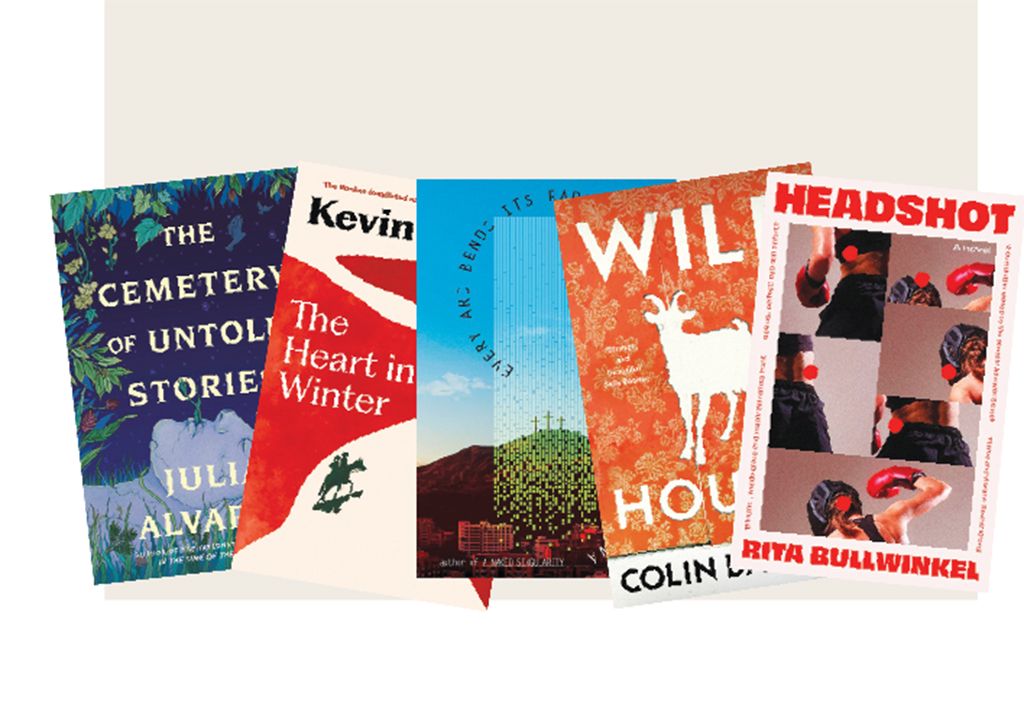The end of a year is naturally a time for reflection, and it would be a sad thing if reflection couldn’t be turned into a set of unjustifiable and self-aggrandising claims. So here’s my attempt to pretend that I am such a literary authority as to be able to tell you what the finest books published in 2024 were. I’m not, obviously. But in a festive spirit of generosity, humour me.
The Cemetery of Untold Stories by Julia Alvarez
Stories that can’t be put into a novel telling themselves within the frame of another novel and then one of them being turned into a ‘real’ novel in the world of the novel itself. It all sounds terribly meta, doesn’t it? And it is. But Alvarez’s genius is such that the novel’s cleverness is so far subordinate to its moving, beautifully rendered storytelling, that it never obtrudes, never feels clever for its own sake. It ultimately insists that all voices have value, and that a good listener finds beauty in the story of everyone and everything. This is a book in love with stories with a love that is infectious, irrepressible.
The Heart in Winter by Kevin Barry
It’s likely that you’ve never read a tragi-comic western picaresque novel. I don’t know how many exist, but whether or not you can conceive of what a book that sort of falls into this category might be like, you should read The Heart in Winter. This is a book where you could open it to any page having read none of what’s come before, and you’d have a wonderful time without needing to know what the hell is going on. This is a book where phrasing is everything, written by a man who clearly wants to show off, and for whose verbal ostentation you end up feeling nothing but gratitude because it is, quite simply, marvellous.
Every Arc Bends its Radian by Sergio de la Pava
A detective novel in which everyone we meet, whether detective, henchman, super-villain, or plastic surgeon’s assistant, speaks in an idiolect that is, in lexis and syntax, a compelling blend of the literary, the philosophical and the clipped elision of a busy New Yorker trying to get their point across, and which spans the mythological, the scientific, the philosophical and the speculative, all the while delivering the surveillance, deceptions and deductive brilliances that typify good detective fiction. If that sounds remarkable, that’s because it is.
Wild Houses by Colin Barrett
Between two characters who never meet, the action of a story of kidnap, extortion, exploitation, duty and sacrifice unfolds. With it, Barrett evokes a sense of the tangles of community that simultaneously connect and bind people to each other in a small town in County Mayo. The final haunting magic of the book is how Barrett crafts something in which the facts remain resolutely bleak at the end, and yet you feel uplifted for having read them. This is the first of two novels on this list that made the Booker longlist but no further. Do I know better than the esteemed judges of Britain’s most prestigious literary award? Read the nominations and decide for yourself.
Headshot by Rita Bullwinkel
A sequence of under 18 girls’ boxing matches, every one of which acts as a visceral evocation of individuality and sameness, achievement and futility, Headshot is so powerfully moving because each fighter is simultaneously there by choice and by obligation; they have committed so much and come so far for these moments, yet the reasons for doing so are personal tragedies, whether large or small, beyond their command. Equally, we see that these fights spring from an integral part of each girl’s nature, while being more or less irrelevant to the lives we find out they will go on to lead. A paradoxical and perfect book also on the Booker longlist.






Click here to change your cookie preferences